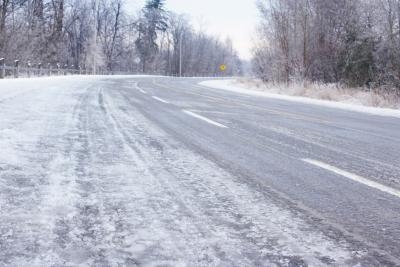
While driving on slippery roads, drivers usually aren't thinking about the decreasing value of their vehicle. Although road salt helps to increase the traction an automobile gets on wintry or wet roads, it can cause significant problems for a vehicle. However, car owners can use a variety of methods to decrease the effects road salt has on their car.
One common problem caused by road salt is car paint erosion. Although this may not happen over night, continued interaction with road salt can destroy the paint on a car over time. Modern automotive paint is better than it was decades ago; and improved primers and corrosion-resistant coatings decrease the impact road salt has on vehicles. Even with better paint, owners and their vehicles fall victim to the winter road warrior otherwise known as road salt. After a few winters, drivers may find they need a new paint job.
Another more serious problem caused by road salt is rusting. Although the paint serves as a protective layer for the metal of a vehicle, other areas of exposed metal, such as underneath the car, become victims of road salt. Over time, road salt can even eat through the vehicle's paint and get to the metal underneath. Even though rust is not usually a safety factor, it can be quite expensive to fix. Once rust forms, it usually spreads. Because of this, it's best to deal with rust before it occurs.
What makes structural damage so severe and dangerous is that it occurs out of sight. Sometimes, the paint of a vehicle appears normal, but road salt has begun to eat away at the undercarriage of the vehicle. The undercarriage is at the highest risk level for road salt damage because it is constantly exposed to road salt -- being so close to the road -- and it does not feature a protective layer of paint, unless specially added. Structural damage, such as severe rusting, can be very expensive to fix and can cause safety hazards.
The best way to prevent road salt damage is to wash the vehicle frequently. Washing a vehicle can remove salt from out-of-sight places. The undercarriage is especially important to wash because of frequent salt build-up. Parking a vehicle in a warm place, where the ice melts, can accelerate the damage caused by salt. To help prevent damage from road salt, a driver should wash her car about once a week. Waxing the car before winter comes will add a layer of protection as well.